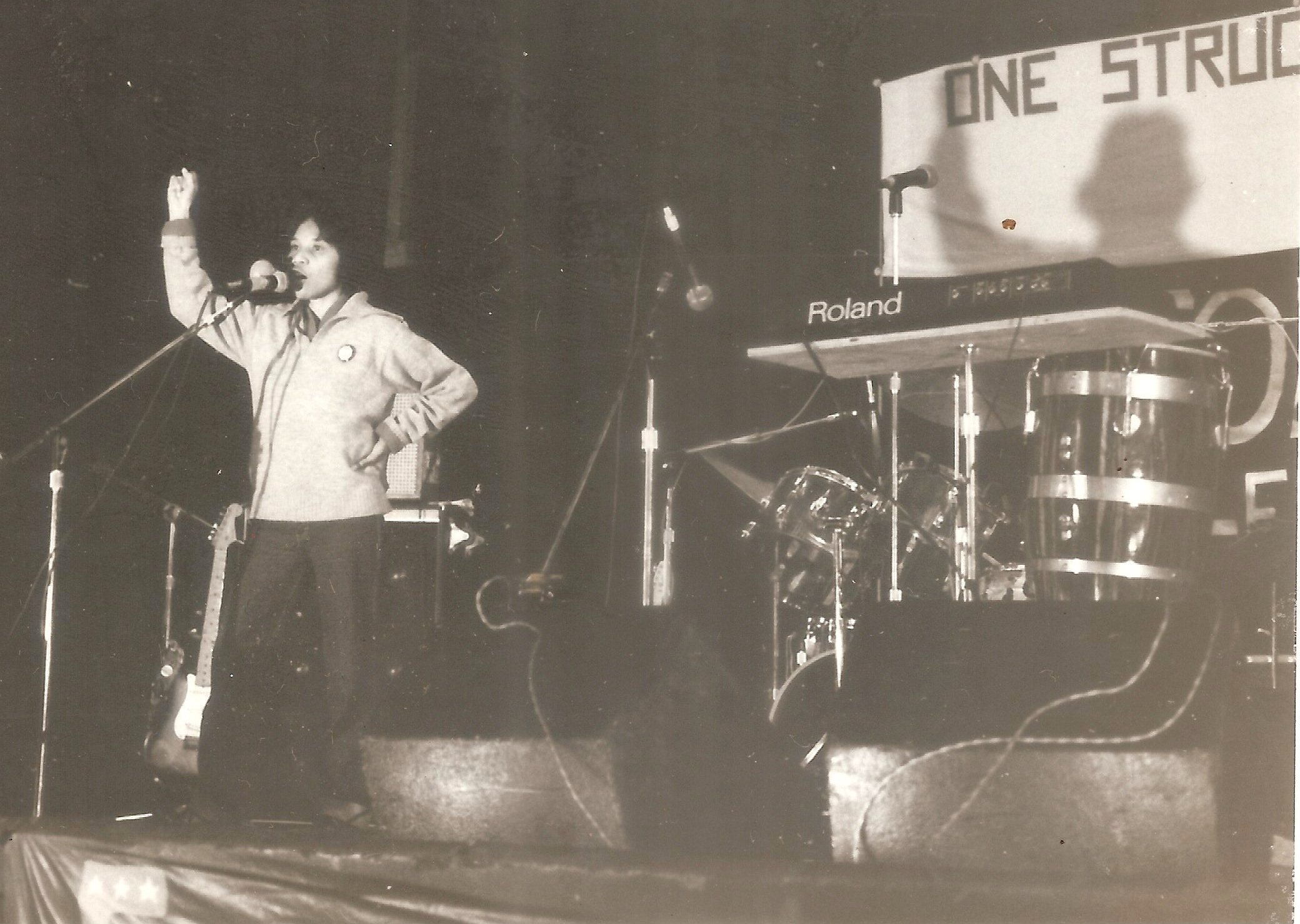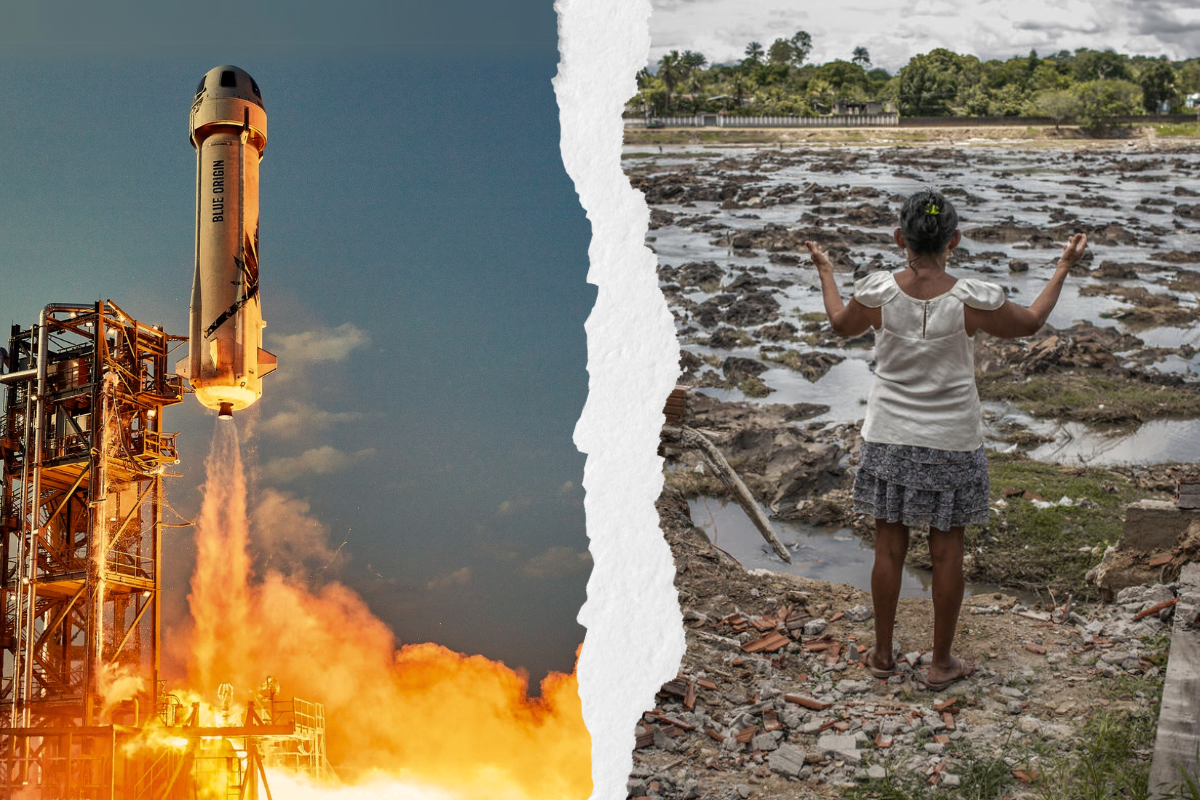Geneva, Switzerland – In the most comprehensive assessment of climate impacts yet, the Intergovernmental Panel on Climate Change’s (IPCC) Working Group II report delivered their latest scientific assessment to world governments today.
Focusing on impacts, adaptation and vulnerability, the report lays out, in sobering detail, how severe the impacts of climate change already are, causing widespread losses and damages to people and ecosystems around the world, projected to escalate with every bit of further warming.
Kaisa Kosonen, Senior Policy Advisor, Greenpeace Nordic said:
“The report makes very painful reading. But only by facing these facts head on, with brutal honesty, can we find solutions that match the scale of the interconnected challenges.
“It’s all hands on deck now! We need to do everything faster and bolder, at all levels, and leave no one behind. The rights and needs of those in most vulnerable conditions must be placed at the heart and center of climate action. This is the moment to rise up, think big and unite.”
Thandile Chinyavanhu, Climate and Energy Campaigner, Greenpeace Africa said:
“For many, the climate emergency is already a matter of life or death, as homes and futures are on the line. This is the lived reality of the communities of Mdantsane that have lost loved ones and their life possessions and for the residents of Qwa qwa unable to access vital health services or school as a result of extreme weather. But we will fight this together. We will go out on the streets, we will go to court, united for justice and we will hold to account those whose actions have disproportionately damaged our planet. They broke it, now they have to fix it.”
Louise Fournier, Legal Counsel – Climate Justice and Liability, Greenpeace International, said:
“With this new IPCC report, governments and corporations have no choice but to act in line with science to meet their human rights obligations. If they won’t, they will be met in court. Communities made vulnerable by climate change will continue to vindicate their human rights, demand justice and hold those responsible to account. In the last year, an unprecedented number of key decisions with far-reaching impacts were issued. Just like the cascading impacts of climate, all of these climate cases are connected and reinforce a global standard that climate protection is a human right.”
Onboard a scientific expedition to the Antarctic, Laura Meller, Greenpeace’s Protect The Oceans Campaign, said:
“One solution is right in front of us: healthy oceans are key to reducing the impacts of climate breakdown. We don’t want any more words, we need action. Governments must agree on a strong Global Ocean Treaty at the United Nations next month to enable the protection of at least 30% of the world’s oceans by 2030. If we protect the oceans, they’ll protect us.”
Li Shuo, Global Policy Advisor, Greenpeace East Asia, said:
“Our natural world is being threatened like never before. That is not the future we deserve and governments must respond to the latest science with action this year at the UN Biodiversity Summit, by committing to protecting at least 30% of land and oceans by 2030.”
Since the previous assessment, climate risks are appearing faster and will get more severe sooner. The IPCC finds that mortality from floods, drought and storms was a staggering 15 times higher in highly vulnerable regions during the last decade, compared to regions with very low vulnerability. The report also acknowledges the crucial importance of fighting the interconnected climate and nature crisis together. Only by protecting and restoring ecosystems can we build their resilience towards warming, and protect all their services human well-being depends on.
The report will define climate politics, whether leaders want it or not. Last year in Glasgow at the UN climate summit, governments admitted they’re not doing nearly enough to meet the Paris Climate Agreement 1.5°C warming limit, agreeing to revisit their national targets by the end of 2022. The next climate summit, COP27 in Egypt later this year, is where countries will have to also address today’s updated IPCC findings on the growing gap on adaptation, on loss and damage, and deep injustices.
The Working Group II contribution to the IPCC Sixth Assessment will be followed by the contribution of the Working Group III in April, which will assess ways to mitigate climate change.The full story of the IPCC Sixth Assessment Report will then be brought together by the Synthesis Report in October.
ENDS
See our independent briefing with Key Takeaways from the IPCC WGII report on Impacts, Adaptation and Vulnerability (AR6 WG2).
Images: Images and videos of climate change impacts are available from the Greenpeace Media Library.
Contact:
Gaby Flores, Communications Coordinator, Greenpeace International, [email protected], +1 214 454 3871
Greenpeace International Press Desk, [email protected], +31 20 718 2470 (24 hours)



